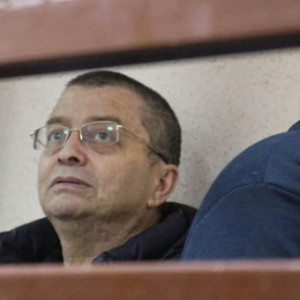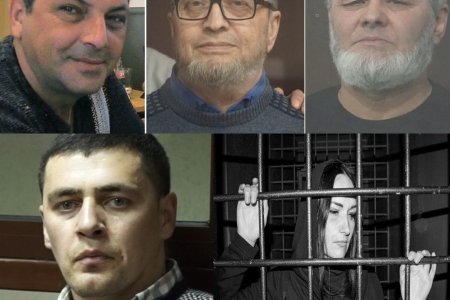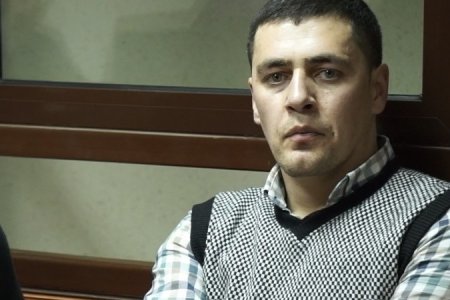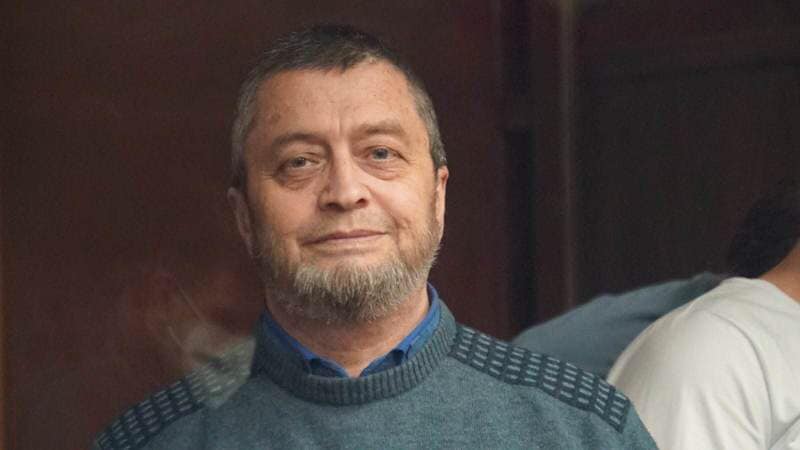
Russia’s supreme court has finally cancelled the 13-year sentence passed against Dzhemil Gafarov almost two years after the Crimean Tatar political prisoner died in Russian captivity. Gafarov should never have been imprisoned, and not only because of the political nature of the charges, but because of grave health issues which, even by Russian standards, should have precluded detention. No attempt has ever been made to redress the wrong done him, or to hold to account those officials who effectively tortured the gravely ill man to death.
The ruling by the supreme court cassation chamber on 12 November was essentially only acknowledgement that Gafarov is no longer alive and can therefore not serve the 13-year sentence. It was, nonetheless, typical that the judges from the military court of appeal in Vlasikha (Moscow region) who should have revoked the sentence back on 11 September 2023, failed to do so. They instead upheld a 13-year sentence against a man who had died, in pain and immense suffering, seven months earlier.
Dzhemil Gafarov (born 31.05.1962) was a structural engineer by profession but had been diagnosed in 2017 with fourth stage chronic kidney disease (one level before kidney failure) and had, as a result, suffered a serious heart attack. Despite his ill health, he had taken part in various flash mobs, etc. in support of Russia’s ever-mounting number of Crimean Tatar and other Ukrainian political prisoners in occupied Crimea. On 27 March 2019, he became one of the 25 civic journalists and activists arrested in Russia’s worst attack to date on the Crimean Tatar human rights movement. The arrests initiated international outrage and demands for the men’s release, demands that Russia has ignored to this day.
The situation in Gafarov’s case was critical from the outset. Even before his arrest, his kidney filtration level had fluctuated between a quarter and a third of what it would be for a person in good health, meaning that he had effectively experienced a permanent state of blood poisoning. He needed specialist care, regular tests and a proper diet. Instead, he was held in the inhumane conditions of a Russian or Russian occupation SIZO [remand prison], with his wife and lawyers needing to fight through the courts even for Gafarov to be examined by doctors and to receive the medication which his family obtained. Tragically, it was not only Russia’s FSB, prosecutors and courts who helped ensure that the gravely ill political prisoner remained in detention. Even the ‘doctors’ who, in response to such court orders, provided medical assessments, issued the ‘conclusions’ they understood to be demanded, claiming that Gafarov was well enough to be held in SIZO. During at least one of such ‘examinations’, Gafarov was chained to a bed and surrounded by armed men. Various ruses were applied to bypass the fact that Gafarov’s diagnosis, even by Russian law, meant that he should not be in detention. The procedure for Gafarov to retain his disability status was, for example, ignored, with this then used by the SIZO administration to deny any knowledge of his status and the grounds for it. By June 2022 the situation had become so serious that Gafarov was held in a prison hospital for two weeks and the doctors did finally acknowledge that he was suffering from a condition that should preclude his detention. Their diagnosis included arteriosclerotic heart disease; post-heart attack cardiosclerosis; angina with chest pressure of classes I and II; chronic kidney insufficiency; chronic inflammation of part of the kidney (chronic interstitial nephritis); third level hypertension; primary arterial hypertension and a very high risk of fourth level cardiovascular complications. Third level hypertension is listed in the Russian government’s Resolution No. 3 on medical conditions which are incompatible with detention.
This diagnosis was read out at a hearing of the Southern District Military Court in Rostov (Russia) by presiding judge Valery Opanasenko. Neither then, however, nor in October did Opanasenko order his release, at least under house arrest. On 27 October 2022, Gafarov had a heart attack, yet even then the ambulance team lacked the courage to insist that he be hospitalized. Instead of heeding Gafarov’s plea that the number of gruelling ‘hearings’ be reduced, Opanasenko speeded up the process, denying Gafarov and the other four defendants on trial together their right to make a final address to the court.
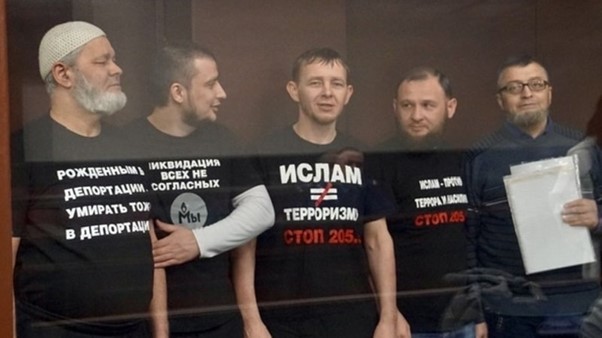
On 11 January 2023, ‘judges’ Valery Opanasenko, together with Andrei Zarya and Stanislav Zhidkov, sentenced Dzhemil Gafarov, Servet Gaziev (b. 1960, who also has serious health issues); Alim Karimov (b. 1994); Seiran Murtaza (b. 1983) and Erfan Osmanov (b. 1982) to 13 years’ maximum-security imprisonment. Like the Russian prosectors Alexander Bondarev and Igor Nadolinsky, they were well aware that these were death sentences in both Gafarov’s case and, almost certainly, in that of Servet Gaziev.
Like the FSB who had targeted the men, all of them also knew that they were taking part in politically motivated sentences of men who had committed no crime, with the charges against them deriving solely from harmless discussions on religious and political topics three years before their arrest and on the ‘testimony’ of anonymous witnesses.
All five political prisoners’ sentences were upheld on 11 September 2023 by the Vlasikha military court of appeal, including that of Dzhemil Gafarov whose death Russia had already caused. Despite the lack of any recognizable crime or , indeed, of any credible evidence, the Russian supreme court’s cassation chamber rejected all cassation appeals against the convictions and sentences.
Russia’s Investigative Committee also refused to initiate criminal proceedings against prison administrative and medical personnel whose actions or failure to act were directly responsible for Gafarov’s death (details of those suspected here).

